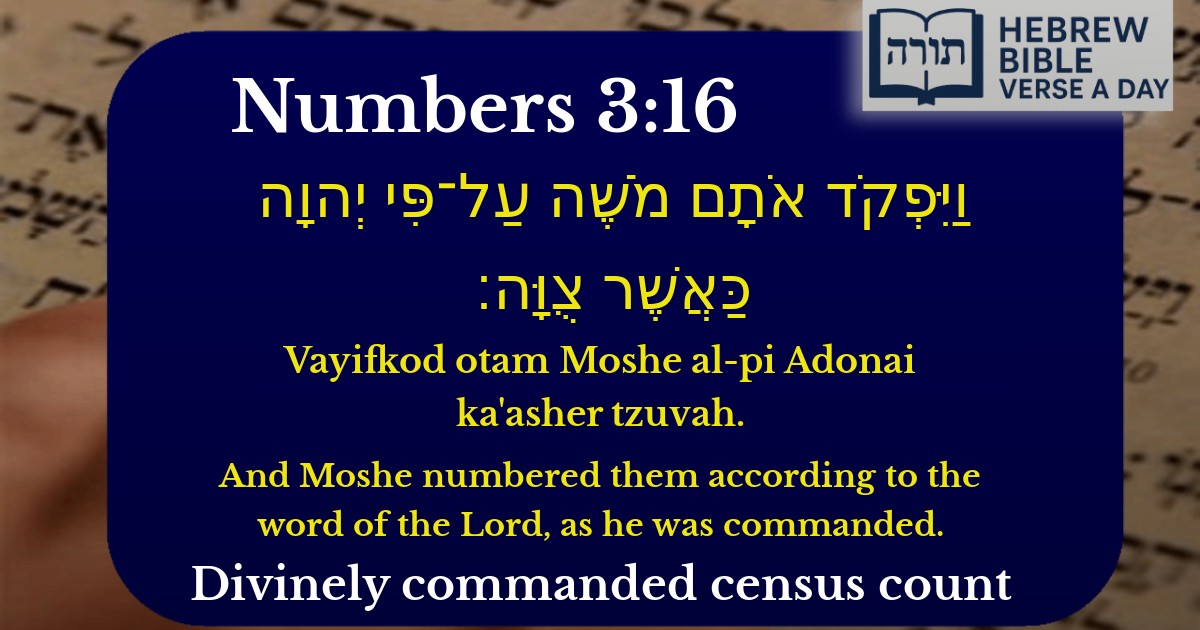Join Our Newsletter To Be Informed When New Videos Are Posted
Join the thousands of fellow Studends who rely on our videos to learn how to read the bible in Hebrew for free!
Hebrew Text
וַיִּפְקֹד אֹתָם מֹשֶׁה עַל־פִּי יְהוָה כַּאֲשֶׁר צֻוָּה׃
English Translation
And Moshe numbered them according to the word of the Lord, as he was commanded.
Transliteration
Vayifkod otam Moshe al-pi Adonai ka'asher tzuvah.
Hebrew Leining Text
וַיִּפְקֹ֥ד אֹתָ֛ם מֹשֶׁ֖ה עַל־פִּ֣י יְהֹוָ֑ה כַּאֲשֶׁ֖ר צֻוָּֽה׃
וַיִּפְקֹ֥ד אֹתָ֛ם מֹשֶׁ֖ה עַל־פִּ֣י יְהֹוָ֑ה כַּאֲשֶׁ֖ר צֻוָּֽה׃
🎵 Listen to leining
Parasha Commentary
📚 Talmud Citations
This verse is not quoted in the Talmud.


Context of the Verse
The verse (Bamidbar 3:16) describes Moshe's fulfillment of Hashem's command to count the Levites. This follows the earlier directive (Bamidbar 3:14-15) to tally the tribe of Levi separately from the rest of Bnei Yisrael. The counting was part of establishing the Levites' role in the Mishkan service.
Rashi's Explanation
Rashi emphasizes that Moshe acted precisely "according to the word of the Lord" - he didn't deviate in the slightest from what he was commanded. This teaches us about Moshe's complete fidelity in executing divine commandments. Rashi notes this is characteristic of Moshe, who is described elsewhere (Bamidbar 9:23) as doing exactly as Hashem commanded.
Rambam's Perspective
In Hilchos Klei HaMikdash (3:2), Rambam derives from this verse that the appointment and counting of Levi'im must be done specifically by a prophet or someone of equivalent stature (like Moshe). This establishes an important halachic principle about who is qualified to assign sacred roles.
Midrashic Insights
Theological Significance
The repetition of "as he was commanded" underscores the Torah's emphasis on precise obedience to divine will. The Malbim explains that this teaches that even great leaders like Moshe must follow commandments exactly, without adding or subtracting.
Practical Lessons